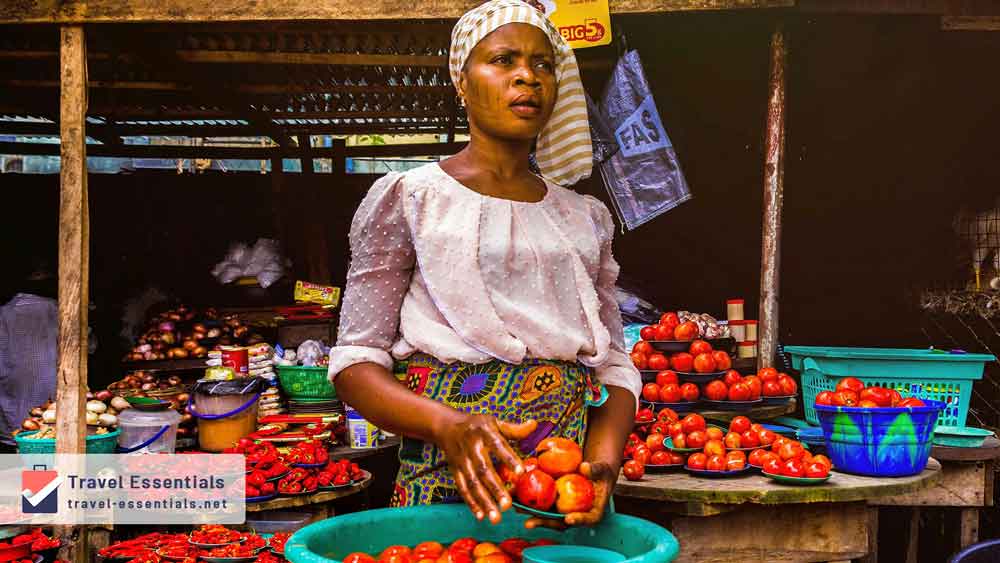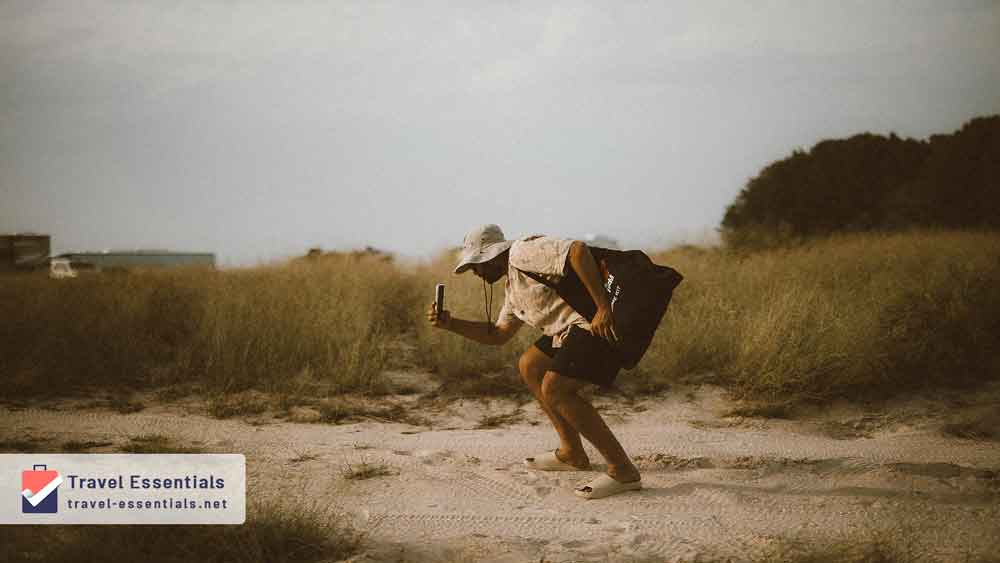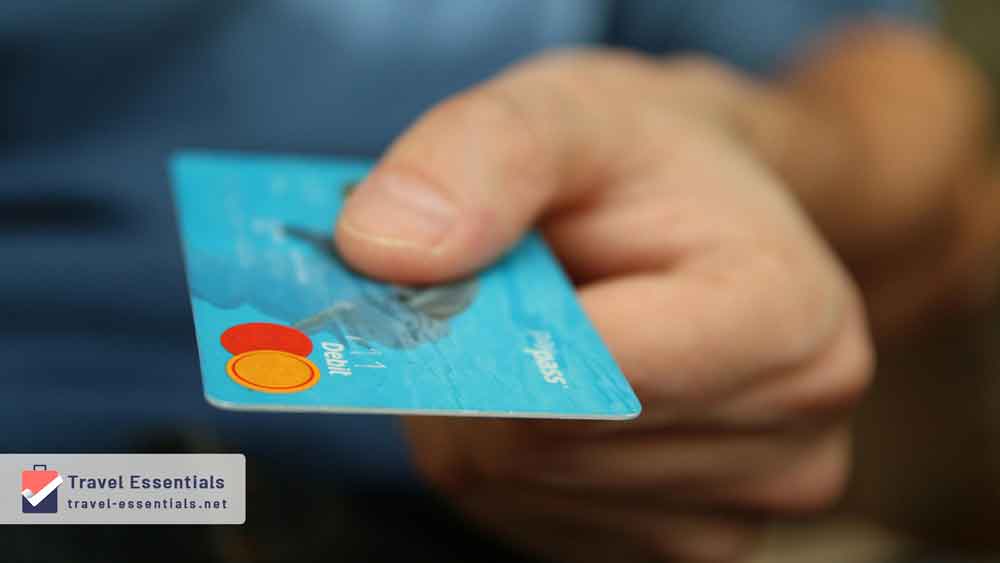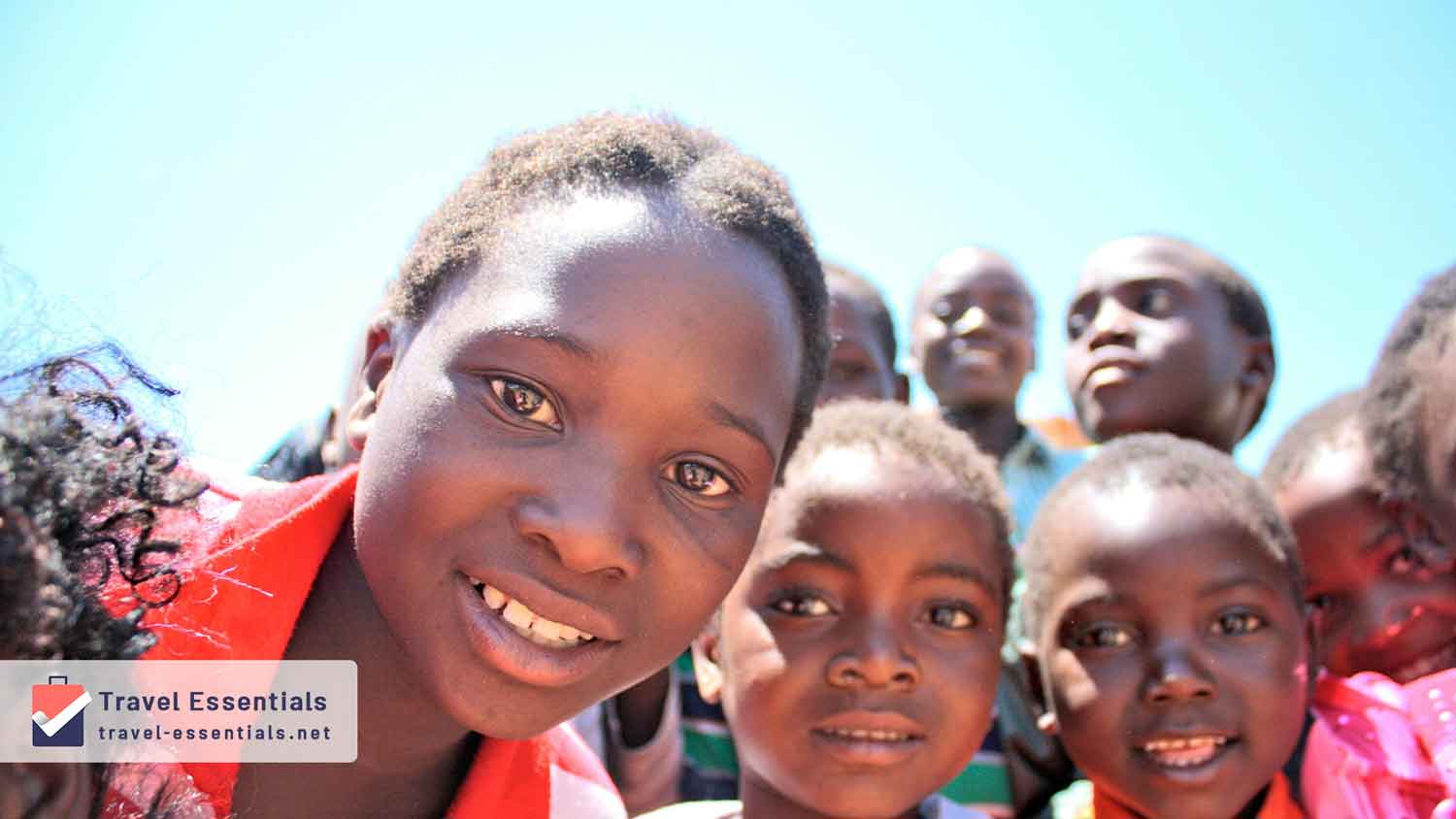Explore Africa’s magic with its unmatched charm and unforgettable adventures! From thrilling leopard sightings in the Sabi Sand Nature Reserve in South Africa to the untouched wilderness of Botswana’s Big Five areas, the continent overflows with wonders.
Picture yourself marveling at the breathtaking Victoria Falls, cruising down the Zambezi River at sunset, spotting wild dogs in national parks, or casting your line for game fishing; all while soaking in the vibrant cultures and natural beauty of this incredible land.
However, Africa’s diverse climates, unique cultures, health considerations, and occasional travel challenges make planning your trip thoughtfully a must. That’s where a comprehensive checklist of travel essentials for Africa becomes your best companion!

In this guide, we’ve put together a detailed list of travel essentials for African adventure, paired with handy tips to make your journey smoother and more enjoyable. Let’s make your trip to Africa as exciting, comfortable, and memorable as it deserves to be!
Checklist of Travel Essentials for Africa
In this section, we’ve got you covered with a comprehensive checklist of travel essentials for Africa to make your adventure smooth and stress-free.
First up, malaria prevention is a must in the checklist of travel essentials for Africa. Pack mosquito sprays and medications to stay protected from those pesky, malaria-carrying mosquitoes.
And with Africa’s intense climates, whether it’s scorching sun or dry, chilly winds, don’t forget sunscreen and a good moisturizing cream to keep your skin happy and healthy.
Next, probiotics can be a lifesaver for your stomach, especially when access to sanitized food and water might be limited.
Let’s talk power; power outages can be a common occurrence, so a reliable power bank and a trusty headlamp should definitely make their way into your bag.
When it comes to clothing, think practical and modest, also avoid white clothes and flashy accessories.
Finally, don’t overlook digital security, having good protective software for your phone and laptop is essential. Alright, let’s dive into the checklist of travel essentials for Africa; Stay with Travel-Essentials!
Packing Necessities
Embarking on a safari in Africa is one of the most unforgettable experiences you can have! Exploring its untouched forests and vast deserts is an adventure like no other, so make sure you’re well-prepared.
Alongside your suitcase and backpack, include a lightweight, flexible bag with plenty of compartments, ideally around 70x30x30 cm among your travel essentials for Africa.

This handy bag will help you organize and access your safari essentials with ease. Opt for something made from lightweight, durable material to keep you comfortable as you journey through the wonders of the African wilderness.
Clothing and Wearables
Africa’s breathtaking attractions often revolve around nature; think safaris, lush forests, or vast deserts. That means your clothes might get a little dirty along the way!
Opt for garments that don’t show dirt easily, are simple to wash, and won’t wrinkle much, who has time for ironing on an adventure?!
Weather in Africa can be unpredictable, shifting from warm sunshine to cooler or even rainy spells. To stay comfy, pack clothing layers that you can adjust as needed.
Lightweight long sleeves and full-coverage outfits are your best friends; not only for protection against Malaria mosquitoes but also to stay sun-safe. Speaking of the sun, a good hat that shields your head, face, and neck is one of the most practical items on your checklist of travel essentials for Africa.

Keep in mind that in some African cultures, bare legs are considered more taboo than bare breasts. To avoid being perceived as immodest, it’s wise to skip shorts and mini-skirts.
Seasoned travelers to Africa usually include slacks, jeans, or skirts that fall to mid-calf or longer, paired with tops that cover the shoulders in their checklist of travel essentials for Africa. Dressing this way shows cultural awareness and helps you blend in more comfortably.
To make your prep easier, we’ve put together a handy checklist of travel essentials for African safari, plus tips to ensure your experience is smooth and memorable. Check it out here and get ready for an incredible journey!
Generally:
In details:
Documents and Papers
When traveling, check passport and visa requirements with the embassies of your destinations as soon as you book. Reconfirm about four weeks before departure, as African countries’ regulations can change unexpectedly.
Your passport should generally be valid for six months beyond your trip (or one month for South Africa) and have at least two blank pages per border crossing. For example, a trip involving South Africa, Botswana, and Victoria Falls requires four blank pages.
And since entry rules can change without notice, always verify the latest details with the relevant embassies to avoid surprises.
Also, don’t forget that a trip to Africa is not just about visiting new places; it’s about experiencing amazing wildlife, stunning natural landscapes, and the excitement of an African safari!
With all these incredible adventures ahead, it’s important to be ready for the unexpected issues. So, make sure one of the top things on your checklist of travel essentials for Africa is getting travel insurance that covers you during your trip.
Health Aids and Medication
Since malaria-carrying mosquitoes are common in Africa, especially in outdoor areas, don’t forget to pack mosquito repellent and any necessary medications for protection.

Also, food safety can be a concern, as meals may not always be fully sanitized, which could lead to illnesses like food poisoning or diarrhea. Be sure to have any needed medications with you to stay healthy and enjoy your trip to the fullest!
Money and Payment Methods
When you’re traveling around Africa, cash isn’t your only option for making payments. There are some convenient payment methods available in many African countries, but it’s essential to double-check if your preferred method is accessible where you’re heading.

Here’s a quick rundown of some popular payment gateways to consider:
Paystack
Paystack is super popular and makes online payments a breeze. Launched in 2015 and acquired by Stripe in 2020, it’s become a game changer that accepts payments from cards, bank transfers, or even mobile money.
- Supports Visa, Mastercard, Verve cards, bank transfers, USSD, and mobile money
- Easy integration with platforms like WooCommerce and
- Shopify
- Secure with fraud protection and PCI-DSS compliance Funds are settled within 24 hours, boosting cash flow
Flutterwave
Flutterwave has made a global impact, helping businesses accept payments from all over the world. It’s especially popular across 33 African countries, and it lets merchants process payments in over 150 currencies.
- Accepts payments in major currencies like USD, Euro, and GBP
- Offers multiple payment methods, including cards, bank transfers, and mobile wallets
- Rave by Flutterwave is great for eCommerce with features like invoicing and subscriptions
- Top-notch security with PCI-DSS compliance and encryption
DPO Group
Operating in several African countries like Nigeria, Kenya, and South Africa, DPO Group helps businesses accept payments from international customers with ease.
- Supports cross-border payments
- Multiple payment options: cards, mobile money, and bank transfers
Personal Essentials
When traveling to Africa, one cannot overlook the thrill and the unique beauty of its pristine landscapes, along with the excitement of a safari.
Therefore, it’s necessary to include the African safari travel essentials in your packing list as well. Here, we’ve compiled a summary of the items for your safari adventure.
Additionally, we have created a separate article featuring a comprehensive checklist of travel essentials for African safari, along with important tips you should know, which you can access here.
Electronic Devices & Gadgets
When traveling to African countries, it’s good to remember that English might not always be the go-to language, especially in less touristy areas.
For example, while Botswana’s official language is English, about 90% of the population speaks Setswana (or Tswana).
In Kenya and Tanzania, you’ll mostly hear Swahili, English, and Maa, the Maasai language. In Namibia, English is the official language, but Afrikaans is more commonly spoken, along with other languages like Damara and Herero.
To make your trip more enjoyable, it’s worth doing some research and including language apps or translation tools in your checklist of travel essentials for Africa to help with communication.
Sanitary Ware & Toiletries
When traveling to Africa, packing hygiene essentials is a must! While exploring the beautiful natural landscapes or going on exciting safaris, you might not have easy access to sanitizing products.
The same goes for some urban areas, so it’s a good idea to include things like hand sanitizers and surface disinfectants in your checklist of travel essentials for Africa to stay clean on the go.
Best African Countries to Visit; A Deeper Look into Africa
Now that we’ve covered the checklist of travel essentials for Africa, it’s time to explore some of the best African countries to visit. Let’s take a closer look!
South Africa
A perfect starting point for first-time safari-goers, South Africa offers iconic Big Five safaris in Kruger National Park and Sabi Sand Nature Reserve, along with luxurious lodges.

Cape Town is a dream with wine tasting, top-tier restaurants, outdoor adventures, and rich history. Plus, the exchange rate offers great value for money.
Botswana
Named the best safari destination of 2024 by Ubuntu Travel, Botswana is a must-see for wildlife lovers. Its low population and untouched wilderness make for an immersive safari experience.

From massive elephant herds in Chobe to the Okavango Delta’s vibrant ecosystem, this country is full of adventure, including quad biking, horseback riding, and visits to meerkat families.
Zimbabwe
Bordering South Africa, Zimbabwe is home to some of Africa’s most spectacular wildlife and natural wonders. Visit Victoria Falls, explore Hwange National Park’s elephant herds, and embark on thrilling walking safaris in Mana Pools.

With UNESCO World Heritage Sites and luxurious lodges, Zimbabwe offers both adventure and relaxation.
Zambia
Zambia shines with its natural beauty and wildlife diversity. Victoria Falls is a must-see, while the walking safaris in South Luangwa National Park and Liuwa Plains are unforgettable. Zambia is quickly becoming a top destination for those looking to explore Africa’s hidden wonders.
These destinations are among the best African countries to visit, offering unforgettable experiences and breathtaking landscapes!
Best African Safaris; The Ultimate Wildlife Adventures
An African safari is a must-do experience, offering thrilling wildlife encounters and stunning landscapes. Whether you’re seeking adventure, luxury, or both, there’s a safari for every traveler.
After getting your checklist of travel essentials for Africa ready, here are some of the best African safaris to explore across the continent.

East Africa’s Migration, Safari & Highlands Adventure
In just 13 days, visit 4 iconic destinations across Kenya and Tanzania. Start in Nairobi with a visit to Nairobi National Park before heading to the Masai Mara, famous for its wildlife and the Great Wildebeest Migration.
Then, head to Tanzania’s Serengeti for year-round Big 5 sightings and, depending on the season, witness the awe-inspiring Great Migration. Finish with a visit to the Ngorongoro Crater, a top spot for seeing rhinos, lions, elephants, leopards, and buffalo!
A Grand African Safari in Tanzania & Kenya
This luxurious 14-day safari across 4 destinations begins in Arusha, Tanzania, with a visit to a coffee plantation. Then, explore the Ngorongoro Crater, staying at the stunning Ngorongoro Crater Lodge.
Continue to the Serengeti, where you’ll stay in luxury lodges for an exclusive wilderness experience. End your safari in Kenya’s Masai Mara at Angama Mara, offering incredible views of the plains and wildlife.
Wildebeest Migration & Gorilla Trekking Safari in East Africa
This 14-day safari across 6 destinations lets you experience gorilla trekking and the Great Migration. Start in Uganda with gorilla trekking in Bwindi National Park, then travel to Kenya’s Masai Mara, where you can witness the Mara River crossings (July to October).
Continue to the Serengeti for more migration action and finish in the Ngorongoro Crater, home to the Big 5. End your trip with a relaxing night at Arusha Coffee Lodge.
These safaris offer the perfect way to experience Africa’s incredible wildlife and landscapes, so get ready for the adventure of a lifetime!
Checklist of Travel Essentials for Africa; FAQs Answered!
Now that we’ve covered the checklist of travel essentials for Africa and explored some of the best African countries and safaris, let’s dive into some of the most common questions people have about traveling there; Your question might just be one of them!
What do I need to travel to Africa?
To visit most African countries, you’ll need a visa unless you have a passport that grants you visa-free access. It’s crucial to double-check the visa requirements based on where you’re from. If you’re traveling with a US passport, a visa will always be required. Keep in mind, that travel regulations can change without notice, so it’s always best to confirm with the embassy before you go.
How to pack for 10 days in Africa?
Previously in this article, we’ve put together a comprehensive checklist of travel essentials for Africa, but if you prefer a simpler version, you can also check out the packing list of Africa below:
- Travel-friendly cutlery
- A zoom lens to capture every amazing wildlife moment on an African safari
- Binoculars
- Travel towel
- Cozy sleeping bag
- Warm jacket
- Thermals for chilly nights
- Comfortable long pants
- Woolly jumpers
- Beanie
- Wool socks
- Sleeping bag liners
- Light cotton T-shirts
- Comfy shorts
- Swimwear
- Loose-fitting clothes
- Hat
- Toiletries and wet wipes
- Sunscreen
- Headlamp or LED torch
- Sunglasses
- Insect repellent
- First aid kit + necessary medications
- Durable closed-toe shoes or hiking boots
- Comfy camp shoes or flip-flops
- Camera (with extra batteries and SD cards)
- Solar charger
- Lip balm
- Refillable water canteen
- African travel guide
What not to bring on African safari?
In many East African countries, single-use plastic bags are banned, including the typical plastic bags you’d find in duty-free shops. However, zip-lock bags are still allowed! When traveling through Southern Africa, it’s best to avoid wearing camouflage clothing, as it’s not recommended in most areas. In Zimbabwe, specifically, military-style clothing is off-limits. Also, drones are generally not allowed in most camps, so make sure to exclude them from your checklist of travel essentials for Africa!
How to avoid getting sick in Africa?
The key to good hygiene is simple; wash your hands often, especially for kids. If you’re in Africa, including hand sanitizer or wipes in the checklist of travel essentials for Africa is a smart move. Being cautious with food and drink can protect you not just from diarrhea but also typhoid, cholera, and other illnesses. The old rule still applies: “Peel it, boil it, cook it, or skip it.” Avoid salads, ice, ice cream, and lukewarm food, and you’ll stay healthier on your African journey!
What vaccines do I need for Africa?
Make sure your vaccinations are up to date! This includes essential ones like the seasonal flu shot and COVID-19 (if eligible), as well as MMR and any vaccines needed due to your job, lifestyle, or health conditions.
Here’s a quick guide:
- Usually recommended: Diphtheria, Hepatitis A.
- Worth considering: Hepatitis B, Rabies, Tetanus, Typhoid.
- For those at highest risk: None specifically at the moment.
Planning to travel? If you’re coming from or passing through areas with yellow fever risk (for more than 12 hours), a yellow fever vaccination certificate is a must for anyone aged 1 and above.


